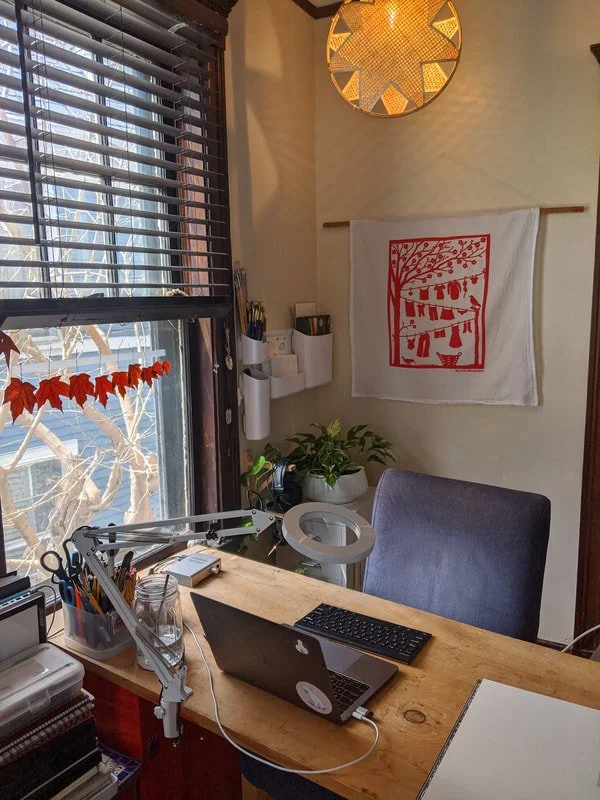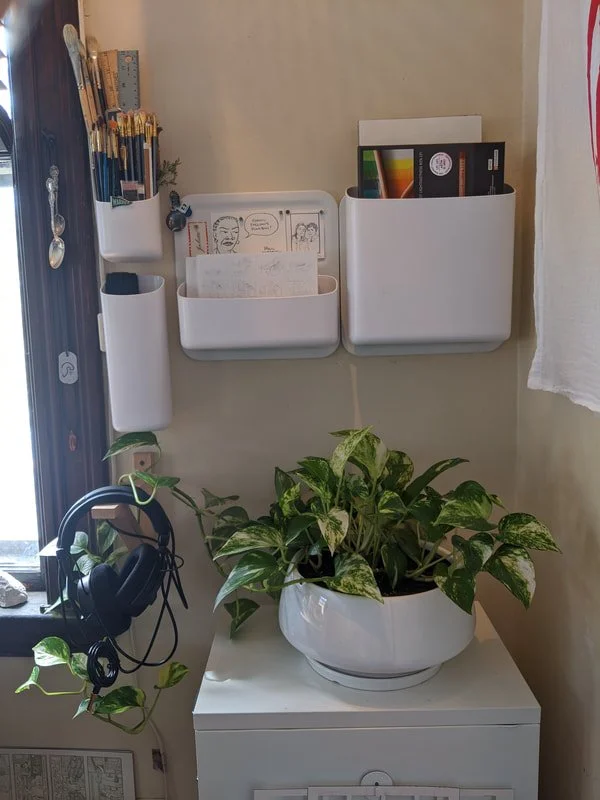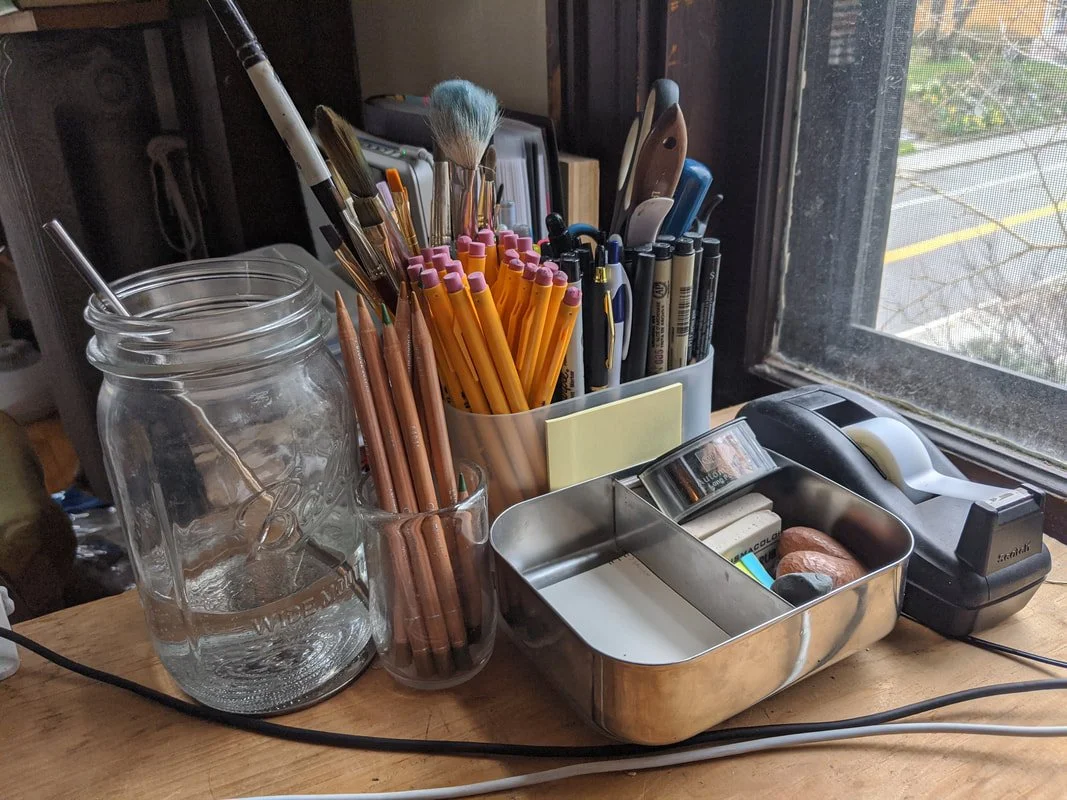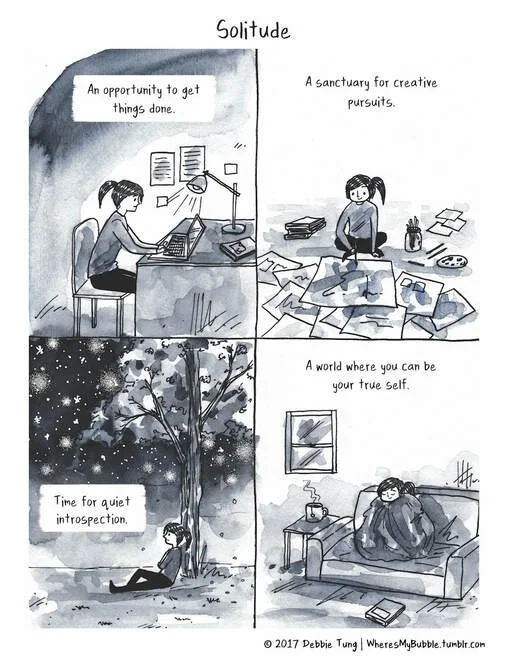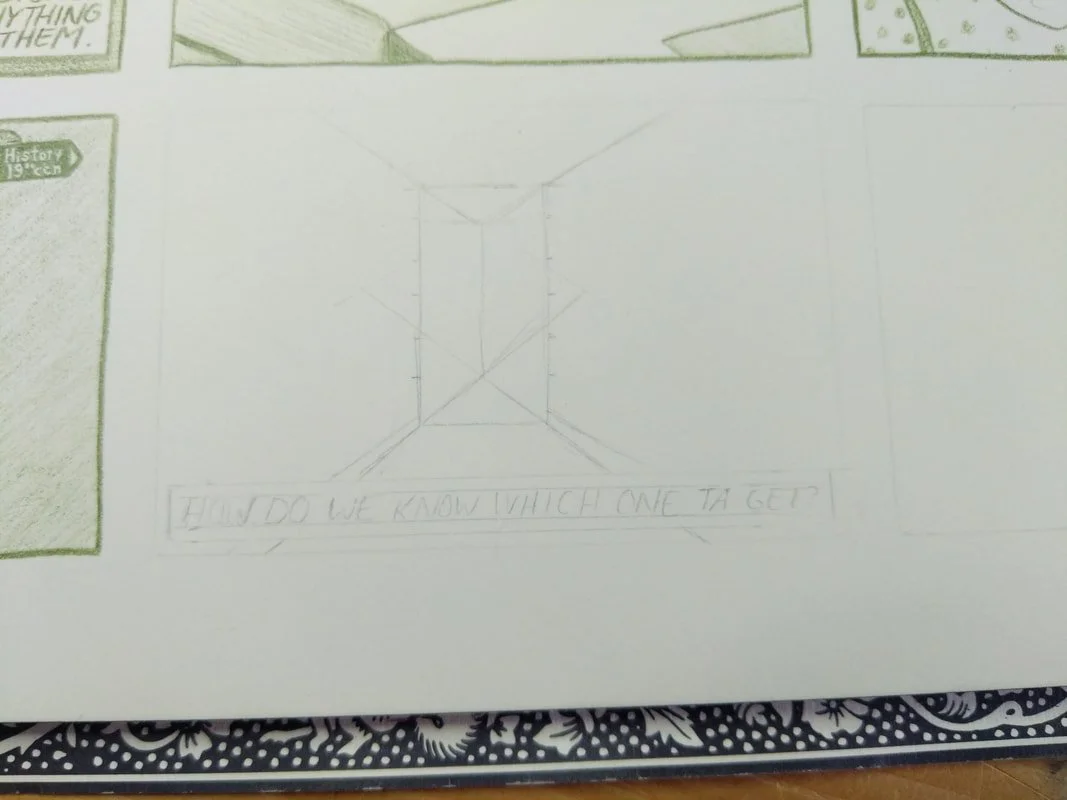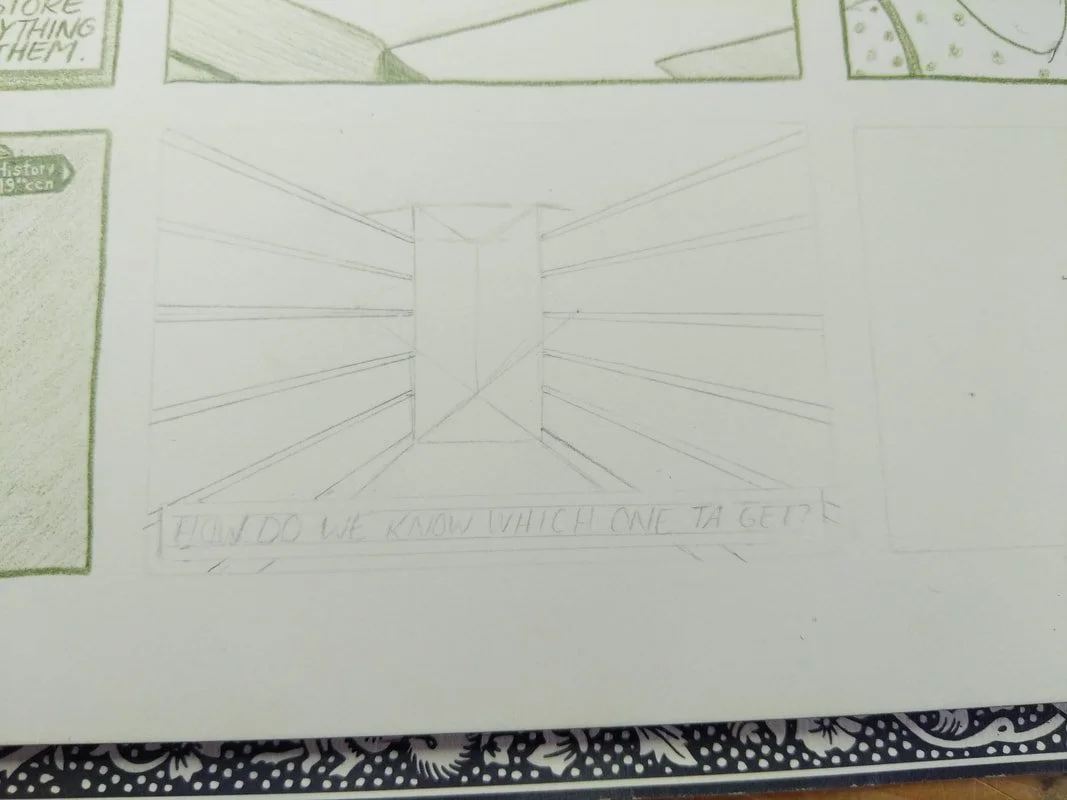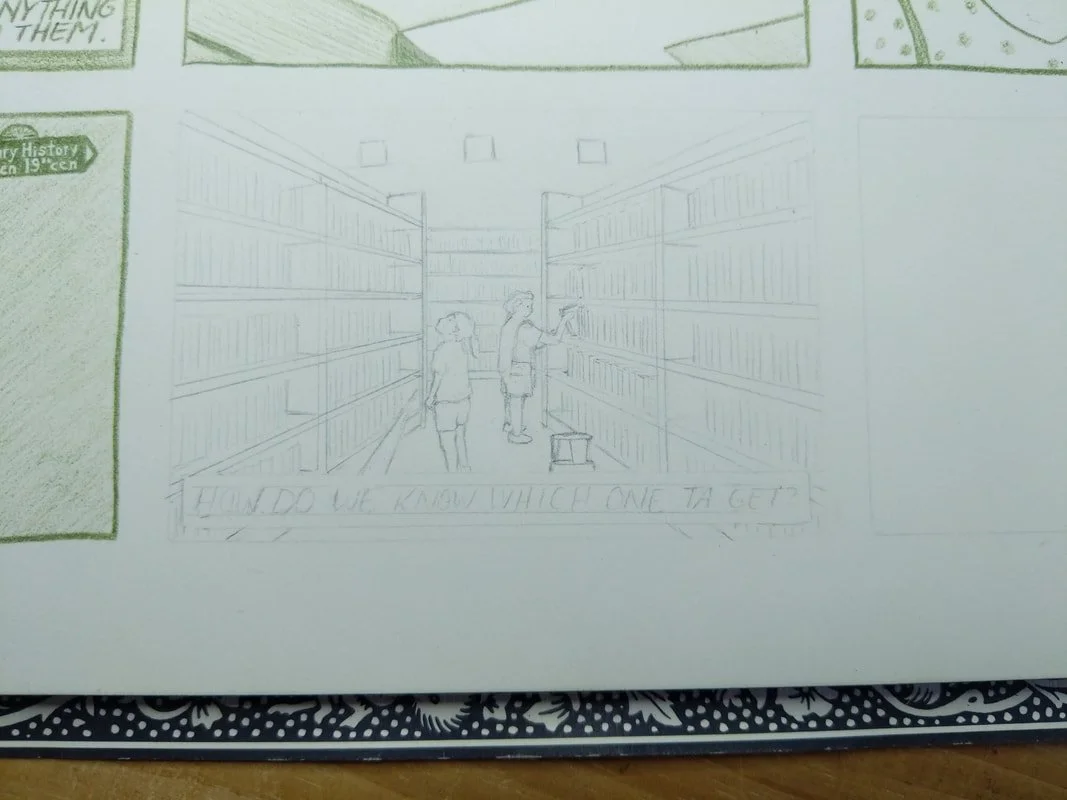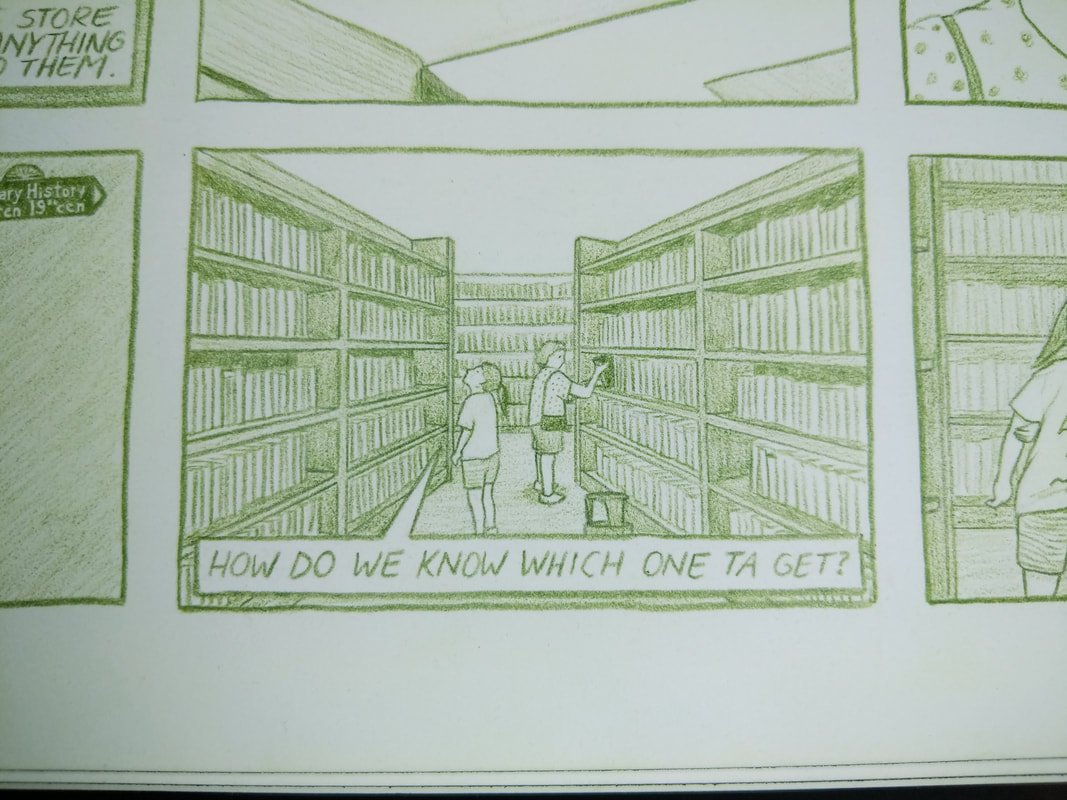Some tips from a natural self-isolator
My little "work from home" corner
Over the last couple weeks I've been thinking about how I'm adapting to working from home and what has been working for me. My job normally keeps me quite busy when I'm onsite, so working entirely from home has been a relief. I know it has gotten old for a lot of folks who are able to do their jobs from home, and for various reasons, but I'm still feeling really positive about not needing to leave the house. This got me thinking about how much solitude I can handle, and I think it's quite a lot. Even as a kid, on the weekends I would keep to myself in my room doing crafts or reading while a lot of my friends were doing sports or going to parties, so I think I've just been restored to factory settings.
This has come up before the pandemic too. Last year I learned about a personality type called “highly sensitive person”. As the name suggests, this is a personality classification that indicates a high sensitivity to various triggers in daily life. I'm not totally bought into the idea that personalities fall into one bucket or another and imagine that for most traits there is a broad spectrum on which people fall. But in reading about the idea of 'high sensitivity' there are definitely some highs and lows that I can identify with. For instance, when I'm engaged with a project I'm often submerged for hours if there aren't any distractions. And when I hear a story from a friend I feel like I can visualize it with them. On the other hand, throughout my childhood I was constantly told that I was “too sensitive” by adults because I would cry over little things and I often felt like the emotional parts of my personality were weak and fragile. I'm also very sensitive to criticism and I may take a simple offhand comment as a lack of trust in me as a person. Small disruptions like misplacing an object really get to me too, and I sometimes agonize over certain kinds of violence in the media.
On top this, three years ago as part of a work offsite meeting, I took the Meyers-Briggs Type Indicator, which is basically a personality test with 16 different classifications. Again, I try not to put too much stock in personality tests and think they should only be used to better understand your personal motivations and tendencies. Much like astrology, these things are pseudoscientific, but I think if there is something you can relate to that is inspiring or causes more self-reflection, that's great. In this case, I was classified as an "INFJ", which is basically the highly introverted bucket. The pillars of this classification are a gravitation toward meaningful connections + guarded personality/aversion to superficial connections, lofty goals + need to socially withdraw/recharge, creative nature + unrealistically high expectations and stubbornness, and compassion + oversensitivity. In reading through all of the material on INFJs, I felt like I had identified the source of a lot of my hangups and felt a little more comfortable in my own skin.
A few months later, I read Debbie Tung's graphic novel about her decision to leave her tech job and pursue a creative career. At the end of the story, she takes the Meyers-Briggs and is also classified as an INFJ. It was comforting to read through the experience of someone feeling the push and pull of managing the demands of a day job with the creative impulses of a personal career. Fast-forwarding to today and the circumstances that the world is currently experiencing with COVID-19, I find a lot of her thoughtfulness about the sanctity of solitude and the value of chasing one's passions to be reassuring. Society is being told to stay home, so finding ways to cater to your defaults eases that adjustment.
When life is normal and we are not in the middle of a pandemic, things like a stressful commute, lots of meetings, and professional commitments are all out of my control and I find I am generally quite sensitive to all the hustle and bustle. I compensate for the sensation of being carried by the tide by building in subtle illusions of control in other parts of my life. I haven't done this consciously, but I tend to create order whenever I can: I use the same products everyday, make my bed the same way, organize my clothes by style and color, heavily use a label maker, and generally live by the "everything has a place and everything in its place" mentality. I have a high bar for order in my apartment, and get more upset over the messes of others than those of my own making. It's comforting to come home and feel that my environment is predictable.
With self-isolation/working from home, my daily life is free from a lot of my normal sources of stress and so I've been able to embrace routines even more. Despite being at the mercy of a global crisis, with small routines in place and without the need to navigate outside my home I feel a lot more centered. The catch phrase right now is "stay home", and because that is where I feel most at ease, the expectation is comforting in a way. I am lucky to still have a job and financial security and my health, and while I fret just as much as the next person about family members getting sick and longterm personal finances and the collapse of the economy, these little illusions of control allow me to let go of my existential worries.
The way things have been the last couple of months, I don’t have a commute, I don’t have to interact with strangers out in public outside of the handful of trips to the market around the corner, I don’t have a large part of my brain occupied by spacial awareness while I’m in a busy office, and I'm making less surprise small-talk. The roads are quieter, I can spend more time with my guinea pig, I have my own kitchen at my disposal, and I can be alone to recharge when I need to be. I still have virtual places to be at certain times during my work day, but meetings feel more under control when taken from my room and my desk, both meticulously programmed to my optimum comfort levels. I am also able to work by a window and out on my deck, whereas in my office, I usually don't see daylight. During a period when the passing of time has become quite imperceptible because each say is so similar to the last, I'm hyper aware of the weather (can I crack my window?), the quality of the sunlight (do I need to draw the blinds to avoid a glare?), and the change of seasons (does that tree across the street always bloom so slowly?). This helps me feel more at peace with the world outside - as scary and as unpredictable as it is.
Everyone is responding to the virus in their own way depending on their line of work and what helps them cope. Some are in an essential line of work and are keeping society running and as healthy as can be, some feel called to act through volunteerism, and others are learning something new or finding comfort in what they know. I'm certainly not an essential worker and in terms of volunteering, have only signed on to run errands for people in my community but have not actually had the opportunity to do so. So my area of expertise is mostly in "staying home" and finding ways to be productive, I'm going to try and share what has been working for me over the course of the next week.
